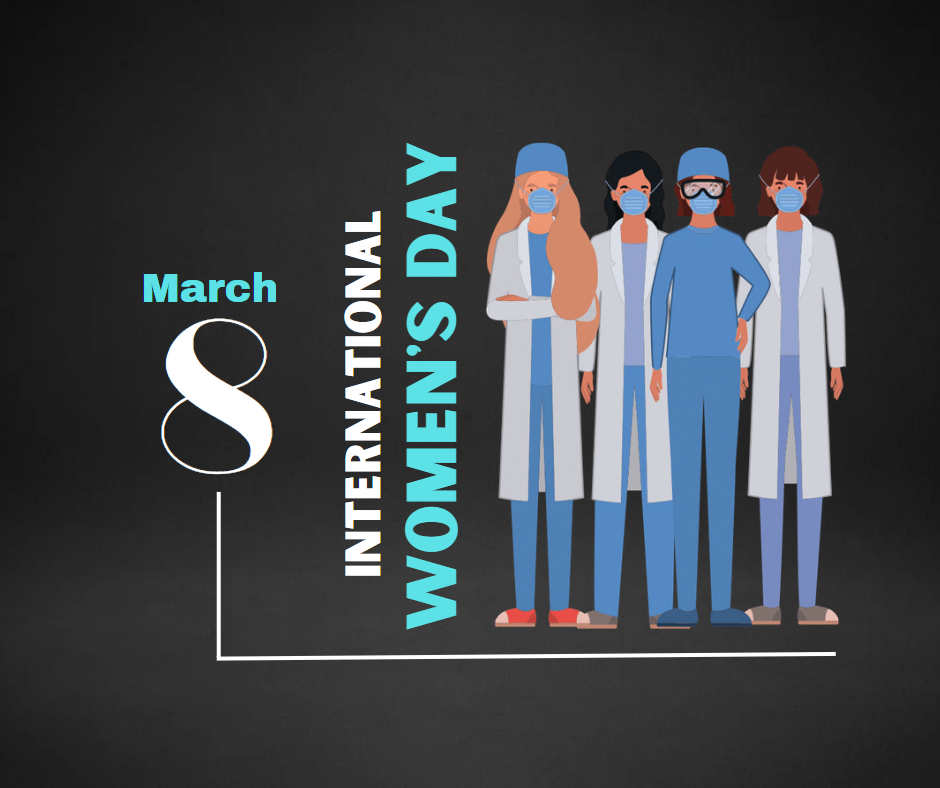Celebrating Women’s History Month

Every year, March is recognized as Women’s History month with International Women’s Day occurring on March 8th.
Women have played such a integral role in the field of medicine. This month, we are honoring the women that dedicate their lives to helping patients, leading medical advancements, and helping their communities
Women in Medicine
Women make up 37.1% of active physicians across all specialties, according to the American Medical Association. This is up from 28.3% in 2007.
According to the American College of Graduate Medical Education, women make up 47.3% of residents and fellows, which has increased from 44.6% in 2007.
For the first time ever, the Association of American Medical Colleges reported that women constitute the majority of medical students at 50.5%.
Pediatrics and obstetrics/gynecology are the leading subspecialties for women physicians, at 65% and 60.5% respectively. Historically, these specialties have been largely comprised of women so there are other specialties where growth and advancement in gender and racial diversity are still needed.
Notable Women Physicians in Medicine
- Elizabeth Blackwell, MD
- The first woman in the US to earn a medical degree (Geneva Medical College, 1849).
- Opened the New York Infirmary for Women and Children (1857).
- Opened a medical college for women in New York City.
- Rebecca Lee Crumpler, MD
- The first African American woman in the US to earn a medical degree (New England Female Medical College, 1864).
- Authored “A Book of Medical Discourses” which is believed to be the first medical text written by an African American author (1883).
- Susan La Flesche Picotte, MD (Nebraska Native!)
- The first Native American woman in the US to earn a medical degree where she was valedictorian (Women’s Medical College in Pennsylvania, 1889).
- Opened a hospital in the reservation town of Walthill, Nebraska (1913). Today, it still stands as a museum dedicated to showcasing her work in medicine.
- Made public health contributions to reduce mortality rates by banning communal drinking cups, pushed for window screens for ventilations and protection from disease-carrying insects, and raised awareness about good hygiene and food sanitation.
- Mary Edwards Walker, MD
- The first female U.S Army Surgeon during the Civil War (1863).
- Only woman to have been awarded the Presidential Medal of Honor by Andrew Jackson. At the time, she did not qualify for the award and decades later, President Jimmy Carter legally restored the award in her name.
- As a women’s rights activist, she advocated for “dress reform” and women’s suffrage.
- Jane Cooke Wright, MD
- The first woman to be elected president of the New York Cancer Society (1971).
- After becoming head of the cancer chemotherapy department and associate dean at the New York Medical College, Dr. Wright was the highest ranked African American woman at a nationally recognized medical institution (1967).
- Her father, Dr. Louis Tompkins Wright, was one of the first African American graduates of Harvard Medical School.
- Antonia Novello, MD
- The first woman and first Hispanic to serve as surgeon general of the U.S (1990).
- After attending medical school in Puerto Rico, Dr. Novello earned a Master’s degree in Public Health from Johns Hopkins University (1986).
- Most notable of her impacts was to end tobacco advertisements targeting children.
Additional Resources
American Medical Association: Women Physicians Section
American Medical Association Ed Hub: Supporting Women in Medicine CME Course (11.5 CME credits)
Changing the Face of Medicine: Celebrating America’s Women Physicians
Association of American Medical Colleges: Group on Women in Medicine and Science
American College of Physicians: Women in Medicine
American Medical Women’s Association
